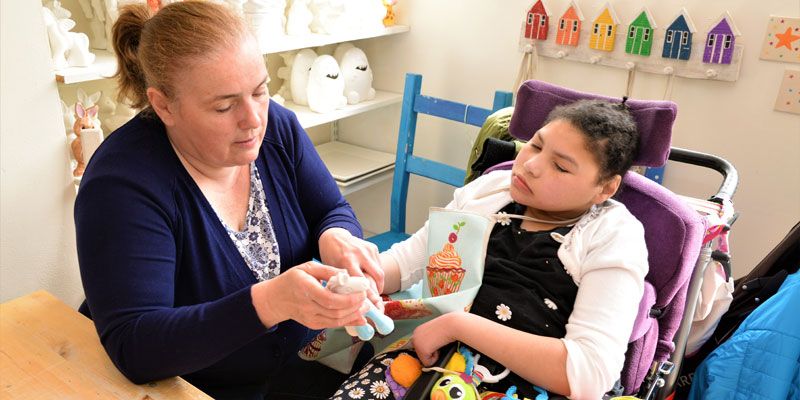
A quarter of parents of disabled children provide 100 hours of care a week – equivalent to three full-time jobs – according to new research.
The study, conducted by Dr Lisa Buckner from the University’s School of Sociology and Social Policy is published at a time when respite care centres for disabled children, which provide a lifeline to families providing round the clock care, are being closed or threatened with closure.
Commissioned by Contact, the charity for families with disabled children, Dr Buckner’s study found 24 per cent of parent carers across the UK provide 100 plus hours of care every week. Unlikely workers in employment, they do not receive benefits such as sick pay, regular holidays or a pension.
Dr Buckner said: “Many parents feel they do not get sufficient support for the vital role they are doing. Where they do get help from outside the family, there is a very real concern that those services are going to be lost or reduced because of the squeeze on spending.”
The charity worked with Dr Buckner and consultant Professor Sue Yeandle to analyse the country’s largest available datasets, including the census, to publish the report: Caring More Than Most.
The most up to date and comprehensive profile of the half a million households who have a disabled child in the UK today, it also shows:
- One in five parent carers leave paid employment because they are unable to stay in work and maintain their caring responsibilities.
- Parent carers are more likely to say the care they provided has affected their health, with nearly a third (31 per cent) saying that it had made them depressed.
Dr Buckner added: “The report shows the significant demands placed on the families of disabled children. A third of the carers surveyed felt their health had suffered because of the physical and emotional demands of caring.
“The caring that they do comes at great personal cost, with many parents and other carers having to give up work so they can look after a loved one.”
Disabled children were twice as likely to live in families where there is no parent in paid work, at 34 per cent compared to 17 per cent of families with non-disabled children, the report detailed.
In addition, the data showed disabled children were more likely to live in households with no access to a car, in a home with no central heating and in overcrowded accommodation.
Amanda Batten, Chief Executive of Contact said: “This report lays bare the significant disadvantage families with disabled children face in all key aspects of life – health, employment, economic situation and housing.
“The simple reason so many families are providing this level of care is down to a shameful lack of support. It is utterly unforgivable that some of those families are now faced with the small amount of support they do receive being reduced or taken away.”
She highlighted the value of respite care centres and other short break services and said that, together with 50 other charities under the banner of the Disabled Children’s Partnership, Contact was calling on government to act to stop the cycle of disadvantage for families.
Further information
Image credit: Contact
For interviews, contact the University of Leeds press office on 0113 343 4031 or email pressoffice@leeds.ac.uk.